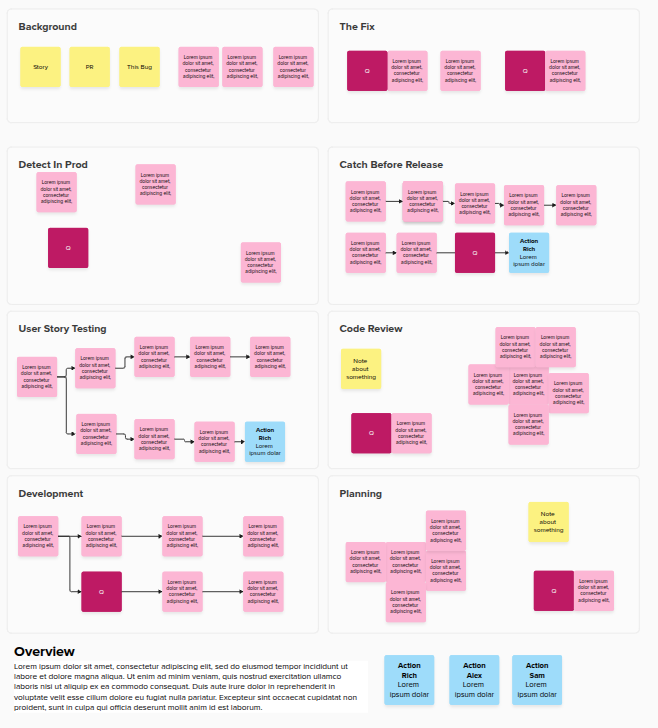
Meaningful RCAs: Documenting the results
So far I’ve written a few blog posts around conducting RCAs where I’ve focused on the people and questions. However what I’ve yet to touch upon is the documentation side.
In a similar idea to the concept that the activity of coming up with a test plan is more important than the document itself, I have similar thoughts with the RCA. With this in mind, the most detailed document that I’d have is the collaboration board that I’ve used to facilitate the discussion. It captures our thoughts, discussion and key point.

After the session I will then (as soon as possible) write up the overview. This is to capture the key findings from the RCA, explaining the nature of the problem, what we’ve learnt, any actions and so forth. This is shared with the team(s) on Slack to have a first look before I’d share it more widely.
I did like keeping a spreadsheet with my RCA findings. It would include the summary, a link to the board & tickets and an overly simplified “category” (missed requirement, domain knowledge, coding error etc).
This category is useful for metrics to help us understand patterns. This was useful when I was pushing to drive new initiatives because I could say “if we’d been using examples in refinement, we wouldn’t have had these massively complicated bugs”. If I’d had more time with my former employer, I’d have loved to explore a means of saving RCA summaries where I can tag the RCAs with different things to help demonstrate patterns.
I had also dabbled with feeding this data to an AI agent (one where we’d got the legal protections that it wouldn’t feed back into the main models). This was quite neat… but a topic for another day…
One final note is that I am aware that most people would still prefer to use a more formal & structured documentation approach than myself. I get that. Some of the things recorded could I guess be useful. However I’ve yet to experience any time where a 2 page document is useful. I have found these RCA discussions really useful and subsequently my documentation approach is similar to my retro approach. It is collaborating & capturing a conversation.
If you’d like to read more on RCAs, check out the collection of my posts on the Meaningful RCAs page!
